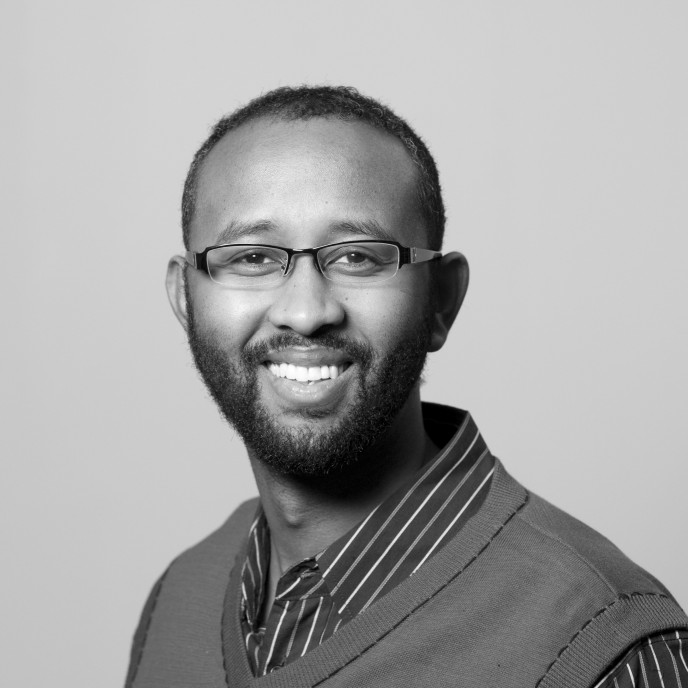
City of Residence:
Minneapolis, MN
Occupation:
Student at North Dakota State University
Excerpt:
“In general, the Muslim youth have a very distinctive challenge, and this is probably very similar to a lot of the immigrant communities, but it has a different connotation when it comes to religious difference, and that is the double identities: the fact that you have a very strong cultural atmosphere at home, and then you have a very different life that you have outside of the home. And children, especially the youth, have a very difficult time balancing those two; so a lot of the youth have a very difficult challenges with that, balancing their religious and their cultural requirements, at the same time trying to take on some of the new culture and new practices that their friends and the environment that they live in practices, and finding out which one to take and which one to leave behind. So as part of the youth leaders early on here, that was one of the biggest challenges that we have to overcome.
I would like to see a very connected community, a community that is connected with wherever they are. At the same time, a community that’s an example; I mean, if our religion teaches us to be exemplars, to be the exemplars of mankind, then we have to play that role. We have to get to the point where that community is looked upon for other communities look at us for—as an example, as a community to follow. You know, when people want free healthcare or free clinics, they should know that, you know, we go to the Muslim clinic because they give us a free clinic. They should know that whenever there’s a need ‘cause that’s, you know, that’s a tradition of the prophet, that’s the tradition that we’re supposed to carry on. Yeah, I know we came here and, you know, we struggled but eventually we’re gonna have to get up, crawl, and start walking, and eventually run and be part of this framework and, you know, build the legacy that was built on by the early settlers here in Minnesota. The people that came here didn’t expect, when they were in this poor conditions in, you know, as farmers, they didn’t know that 694 was gonna be here, 94’s gonna be here, you know, these big buildings and all this—they didn’t expect that. They were given this flat land and they were asked to make something out of it, and that’s, you know, that’s a tall order, and I think the Muslim community came here and they were brought here and, you know, whichever way and they’re now asked to be part of this community; and the least they can do is to be part of the community, but also be part of the exemplar part of the community. And I think that’s my hope for the future.”
Podcast Preview:
Podcast: Play in new window
Podcast (full length):